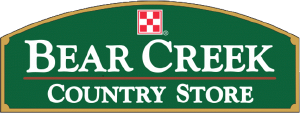 The arrival of spring presents a prime opportunity for farmers and livestock owners to improve the health of their pastures through proper pasture management. Not only does this help to regenerate growth, but it also ensures that the animals are well-fed and healthy. There are a few steps you can take to improve your pasture management including planning rotations, avoiding overgrazing, and looking out for poisonous plants.
The arrival of spring presents a prime opportunity for farmers and livestock owners to improve the health of their pastures through proper pasture management. Not only does this help to regenerate growth, but it also ensures that the animals are well-fed and healthy. There are a few steps you can take to improve your pasture management including planning rotations, avoiding overgrazing, and looking out for poisonous plants.
Plan Your Rotation
Rotational grazing is one of the most effective ways to maintain healthy pastures. This practice involves splitting a pasture into smaller paddocks and allowing the animals to graze on each paddock for a set period of time before moving onto the next. Giving the grass time to recover before it’s grazed again is crucial for its health. In addition, rotational grazing provides an opportunity for livestock to graze on nutrient-rich grass as it regenerates. This practice encourages animal movement and even distribution of fertilizer, ultimately resulting in a better-quality pasture.
Avoid Overgrazing
It’s important to resist the temptation to leave all the animals in one area for an extended period. This can lead to overgrazing, a process where livestock consume too much grass, and it is unable to recover. This can harm the overall health of your pasture and reduce its productivity. Overgrazing can increase the presence of weeds, soil compaction, and decreased water infiltration. The best way to prevent overgrazing is to manage your grazing schedule correctly. It’s important not to leave your livestock in any one area for too long.
Beware of Poisonous Plants
It’s essential to be aware of the different poisonous plants that can be present in your pastures. These plants can adversely affect the health of your livestock if ingested, and some can even be fatal. Such plants include poison ivy and poison oak. Be sure to remove these plants from your pastures, and observe closely whether they are growing back. Consider fencing off any areas in which these plants are known to grow, or uprooting and replanting any areas where they may be present.
Spring pasture management is crucial when it comes to keeping pastures healthy and robust. Proper rotational grazing, grazing management, and attention to poisonous plants will ensure your pasture remains healthy, providing sufficient and nutritious feed for your livestock. Whether it’s your private collection of animals, or livestock that provides for your livelihood, it’s important to prioritize their health and well-being by maintaining healthy pastures. Take these three factors into account to ensure the health and longevity of your pasture and in turn your livestock.
